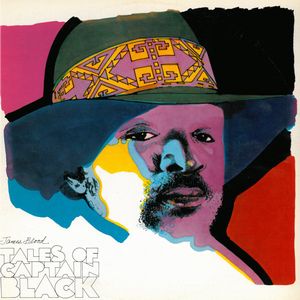Startseite › Foren › Über Bands, Solokünstler und Genres › Eine Frage des Stils › Blue Note – das Jazzforum › Ornette Coleman › Re: Ornette Coleman

This is the source of Ornette Coleman’s Prime Time: „Aboud 1974-75, I realized that the guitar had very wide overtones — one guitar might sound like ten violins. Like, say, in a symphony orchestra two trumpets are the equivalent of twenty-four violins; that kind of thing. When I found that out, I decided, then I’m going to see if I can orchestrate this music that I’m playing and see if it can have a larger sound — and it surely did.“ The result is not exactly jazz but a kind of Free jazz-rock idiom. It’s as far removed from Coleman’s Free jazz as from his classical music, and the term „harmolodics“ has come to be associated entirely (and therefore inaccurately) with this idiom.

Coleman’s first two Free jazz-rock albums were by a quintet, in December 1975; the third album, Of Human Feelings (1979), is by six players; and in the eighties Prime Time is a septet of Coleman, three „lead“ players, and three „rhythm“ players — the lead and rhythm unites are each guitar, bass, and drums. The lead players don’t solo but create streams of interplay with each other and with Coleman’s alto lines, which ride atop the ensemble. Prime Time moves in layers of tempos: Some players double Coleman’s time, some halve it, and the lead guitarist is the only one who now and then breaks away from dotted eighth-sixteenth note patterns. The foundation of the rhythm is the disco thud of the bass drum on each beat; some pieces, like „Macho Woman,“ use a bass drum Bo Diddley beat (compare this to the flowing Bo Diddley rhythm in „Ramblin'“). Coleman’s top lines are in always changing tonalities, and therefore, the others‘ separate tonalities keep changing, too; everyone is constantly modulating, as in Free jazz. Of Human Feelings is far superior to the 1975 LPs, but James „Blood“ Ulmer’s (James Blood’s) Tales of Captain Black, on which Coleman plays alot, is yet a better fusion of Free ideas with rock-pop methods. So far records haven’t captured the spirit of Coleman and Prime Time in concert: an urban rhythmic tribe, with a fluid alto sax dipping and curving throug the merry clatter of loud rock, jerk, and bump.
Coleman’s improvising with Prime Time is nonstop; his inventive stamina is amazing. In general, his playing has become simpler, with less detail, repeated phrases, accented beats, and proliferating sequences. His songs for Prime Time lack the earlier definition of emotion in his composing; his Free jazz-rock is obviously more rhythmically restricted in any case. (S. 55-57)

[…]
The wide-open spaces of Ornette Coleman’s pre-Prime Time repertoire have been left to Old and New Dreams, the quartet of Cherry, Redman, Haden, and Blackwell. No great artists communicates the insights and values he or she offered twenty-five years ago, and Coleman is no longer the radical young bebopper from Texas — „The pain is still there, but it’s not as detrimental as I used to think it would be.“ He’s long since become cosmopolitan, a thorough urbanite with a big-city dweller’s nerves and emtions. Now his music appeals directly to no longer the heard and mind but the neves, reordering the congestion of life’s images and emotions with infectious patterns and simple songs. What persists is the fastination of his music itself and of his urge for discovery, as he continues to transform the jazz tradition. (S. 57f.)
________________________
aus: John Litweiler, The Freedom Principle: Jazz After 1958, New York, 1984, Chapter 2: Ornette Coleman: The Birth of Freedom, S. 31-58
--
"Don't play what the public want. You play what you want and let the public pick up on what you doin' -- even if it take them fifteen, twenty years." (Thelonious Monk) | Meine Sendungen auf Radio StoneFM: gypsy goes jazz, #165: Johnny Dyani (1945–1986) - 9.9., 22:00 | Slow Drive to South Africa, #8: tba | No Problem Saloon, #30: tba